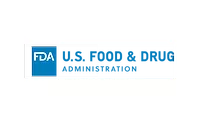All Eyes on the Produce Safety Rule

Pass the salad, please! The Produce Safety rule is now final, and compliance dates have been published. Our journey continues as the rules of the Food Safety Modernization Act (FSMA) continue to unfold. The industry has previously readied itself for the Preventive Controls, Sanitary Transportation of Food and Foreign Supplier Verification (FSV) rules; next up is the Produce Safety rule. Compliance dates vary for this rule, based on the size of the business in terms of sales, as well as certain aspects of the rule that may be applicable to farms. Some farms will begin to see compliance dates within the year.
The safety of growing, harvesting, packing and holding of fruits and vegetables grown for human consumption is the focus of this rule. It establishes mandatory, science-based standards that are expected to provide the minimum framework for food safety across a wide diversity of produce farms. Decreasing potentially harmful bacteria in the supply chain is the objective to reduce the more than 362,000 illnesses per year caused by contaminated produce.
The new standards were developed based on areas that were identified as sources of produce contamination in past food safety events. The standards include requirements for agricultural water quality, employee health and hygiene, animals, biological soil amendments of animal origin, equipment, tools and buildings.
Produce that is not a raw agricultural commodity and farms with produce sales of less than $25,000 per year are exempt from the rule. Also exempt are produce commodities that are rarely consumed raw, such as asparagus, bean varieties, corn, okra, etc., as well as food grains such as oats, rice, rye or wheat. Produce that is used for personal or on-farm consumption, or that received commercial processing that adequately reduces the presence of microorganisms of public health significance, is also exempt.
Domestic farms are responsible for compliance with these new standards, as are foreign growers and harvesters. In fact, foreign growers will be under new scrutiny if they are exporting to the United States, as compliance with these new produce standards will be verified by the importer per the FSV rule.
Furthermore, if a farm has a packing shed on the same property and under the same supplier’s name, then the owner will also be responsible for establishing preventive controls for the shed. The varying ways that FSMA is affecting produce suppliers can be confusing. Education of farmers, especially those that may be providing unique commodities from overseas, is paramount for successfully complying with all FSMA requirements.
The U.S. Food and Drug Administration (FDA) has published guidance documents to assist in the education process; FDA is also working with the Produce Safety Alliance, Sprout Safety Alliance, National Institute of Food and Agriculture at the U.S. Department of Agriculture and cooperative agreement partners to provide training and technical assistance.
FDA has shared that it will “educate while it regulates.” This will be important as the industry is hit with so many new requirements from farm to fork. Some guidance has yet to be published. It is imperative that growers, manufacturers, distributors and retailers continue to ask the hard questions to gain clarity and alignment with the new requirements. Data management has become more important than ever due to new record-keeping requirements around compliance. Systems, programs, tools and proper management of each will be key in the successful oversight of the many moving parts to sustaining compliance.
As consumers in America, we enjoy our year-round access to unique and fresh produce items, regardless of the season. This is in big part because we can import from regions of the globe where the commodities are grown year-round. How foreign growers adapt to the new rules, implement sustainable programs for compliance and continue to do so in a cost-effective manner will be important to maintain the perennial availability of delicious produce from around the world.
Looking for quick answers on food safety topics?
Try Ask FSM, our new smart AI search tool.
Ask FSM →








